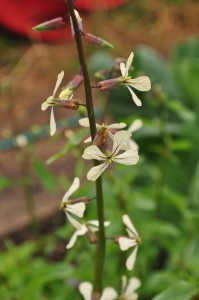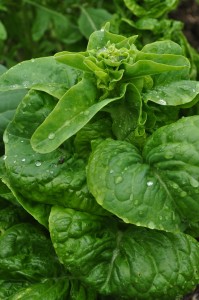Why not consider saving some of your own this growing season?
There’s nothing new about seed saving. It used to be an integral part of the gardening calendar as local varieties would be lovingly saved and passed through generations of families and communities. So whilst it’s undoubtedly very convenient in the cold (or rain) of winter to be huddled inside, contentedly flicking through seed catalogues; home-producing at least some of your own stock provides a history, a sense of place and potentially a resilience that you simply cannot buy.

Perhaps best of all these amazing little home-produced capsules will have adapted to the growing conditions in which they have been formed – namely your back yard. So you’ll in effect have created the best seed possible for your location – for free – which is surely a most enticing prospect.
To start with here’s a little look at some of the easiest and most worthwhile plants with which to work. Each of these beauties only require one or two of each plant so they hardly take up any room. This is seed saving that’s ideal for small space or container gardening.
Peas
‘Easy-peasy’ springs to mind. Pea plants self-pollinate, so all you have to do is leave some of the pods a bit longer before picking them to dry. Remove any that look mouldy and leave the rest (in an airing cupboard, say) till they are bone dry before storing them safely away in a paper bag for next year.
Tomatoes
After scooping out the seed, put it in a jam jar with a few splashes of water for a week or two to enable the material around the seed to break down. The resulting seeds are then rinsed and laid out to dry (ideally on a muslin cloth or something similar) before storing.
French / dwarf beans
Of the beans, these are the easiest to do because they don’t cross-pollinate and you only need a couple of plants.

Lettuce/ rocket/ salad
All salad crops are easy if it’s a nice dry summer. Don’t collect seed from the first plants to bolt and if it’s a wet year they might need a bit of protection so they don’t go mouldy.
Peppers / chilli
Also straightforward if you are growing a single variety of plant (they will cross otherwise). Easy to collect the seed and dry it. Just remember to be careful where you put your fingers afterwards!!
Broad beans
Are a teeny bit fiddly. They will cross readily with other beans, but you can stick a net curtain (or something similar) over your plants before they start flowering. This will do the job nicely as they don’t need pollinating insects to set.
